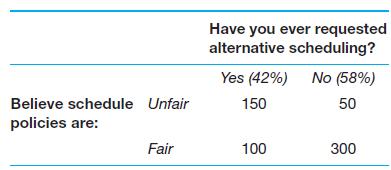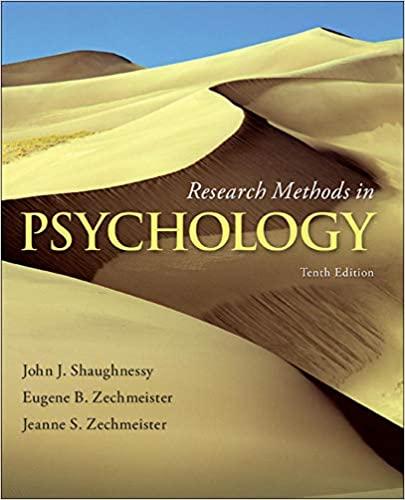The human resources department of a large corporation decides it wants to survey employees knowledge of procedures
Question:
The human resources department of a large corporation decides it wants to survey employees’
knowledge of procedures for requesting alternative work schedules (e.g., flex-time, maternity/paternity leave), as well as employees’ perceptions of the fairness of these corporate policies. The questionnaire also asked employees whether they have ever requested alternative scheduling.
A stratified random sample of 1,000 employees was drawn from payroll’s list of 5,000 full-time employees. Strata were defined based on number of years employed with the corporation and were sampled proportionally. Via interoffice mail, employees in the sample were mailed a survey to be completed and returned anonymously by dropping it in a box. Questionnaires were returned by 600 employees. Results indicated that 200 (33%)
of the respondents rated the corporate policies for alternative schedules as unfair.
A. Was the initial sample of 1,000 employees likely to be representative of the population of 5,000 full-time employees? Why or why not?
B. Suppose the head of the human resources department decides the sample was biased because of the response rate, and the perception by one-third of the sample respondents that the policies are unfair is an overestimate. Is this a correct decision? Why or why not?
C. Suppose the following survey results were obtained:
In addition, data from the human resources department indicate that overall, 1,250 full-time employees (25%) have requested alternative work schedules. Based on these data, what do you conclude about whether the sample was biased?
Step by Step Answer:

Research Methods In Psychology
ISBN: 9780077825362
10th Edition
Authors: John Shaughnessy, Eugene Zechmeister, Jeanne Zechmeister





